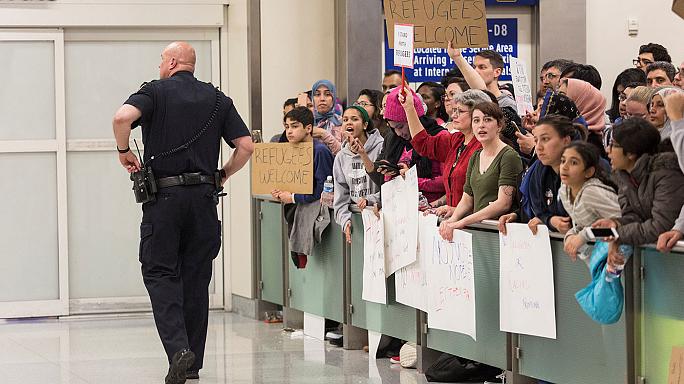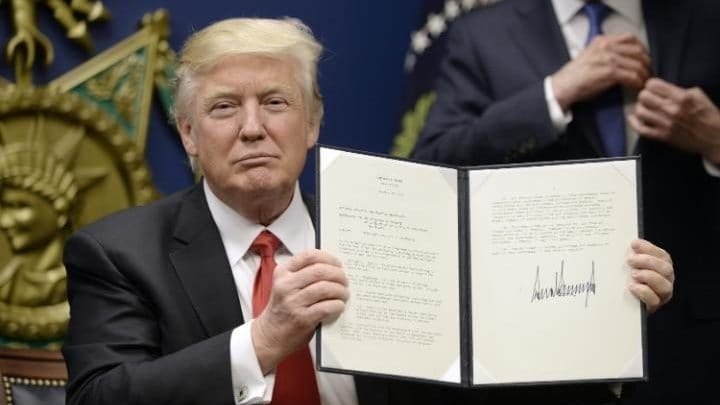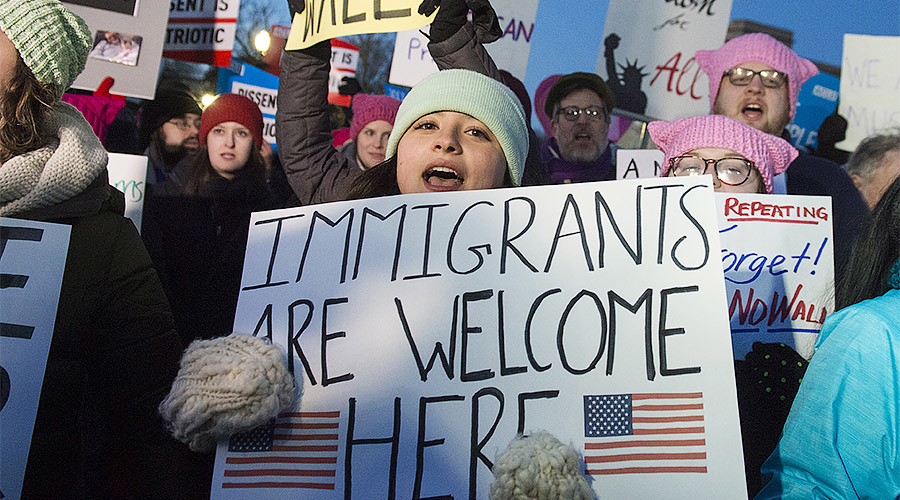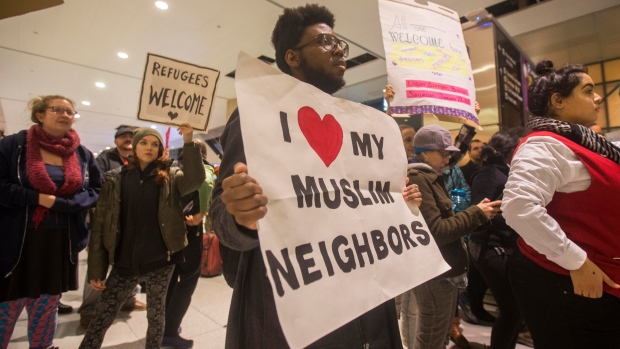
“SEE YOU IN COURT, THE SECURITY OF OUR NATION IS AT STAKE!”
Donald J. Trump, Twitter, Feb 9, 2017
It seems in little need of recapitulation, but the Executive Order 13769, otherwise known as “Protecting the Nation From Foreign Terrorist Entry Into the United States,” has been living a charmed and distorted life. It sought to ban, for 90 days, the entry of nationals into the United States from seven countries. The order was subsequently challenged by two states as unconstitutional and in violation of federal law.
Its progenitor, the now foamingly livid US President Donald J. Trump, was always labouring under the impression that it would pass muster in its entirety. But then again, The Donald was unaware about the restraining niceties of the US court system.
The three judge panel of the Ninth Circuit had to entertain themselves with yet another appeal from the Trump administration on the urgency of the EO, this time against the decision made by District Judge James J. Robart of the Western District of Washington State to grant a temporary restraining order.
The Executive Order’s enforcement was suspended by the good judge, who deemed it necessary to make his order nationwide in application. Apoplectic, Trump charged Judge Robart with a lack of competence, suggesting that any deaths resulting to US citizens from this action be placed squarely on his judicial head. A groan was duly registered in the separation of powers.
Three factors caught the attention of the appeals panel: whether the administration had showed that it was likely to succeed on the merits of its appeal; the extent or degree of hardship caused by the stay or its denial; and that ever pressing issue of the public interest in granting or denying a stay.
Even reading this decision, the EO seems linguistically sloppy, misguided and even hallucinatory in seeing threats and fears. The hallmark of terrorist attacks on US soil, those of September 11, 2001, is seen as a marker, the symbolic point where all justifications issue. Since that date, “numerous foreign-born individuals have been convicted or implicated in terrorism-related crimes”. It followed that the United States had to “ensure that those admitted to this country do not bear hostile attitudes toward it and its founding principles.”
The global situation was truly a panic-inducing one, even if some it had been occasioned by the mischief-making of the US war machine. Many a failed state has had its origins in the carelessly murderous musings of the Pentagon and White House.
The grindstone of war and devastation, according to the EO, globally placed the US at risk, sombrely making Trump reflect that, “Deteriorating conditions in certain countries due to war, strife, disaster, and civil unrest increase the likelihood that terrorists will use any means possible to enter the United States.”
The judges of the Ninth Circuit did not waste time diving into the hardship caused. The government’s case was not being well received. The Executive Order saw thousands of visas cancelled, hundreds of travellers with such visas prevented from boarding airplanes bound for the US or denied entry at point of arrival. Instances of detention were also noted.
On the issue of injury, the States had made out that their public universities had been affected, notably in the fields of teaching and their “research missions”. Students and researchers who were nationals of the seven countries on the banned list were specifically mentioned as being harmed, be it in terms of their study, collaborative ventures, or seeing families. “We therefore conclude that the States have alleged harms to their proprietary interests traceable to the Executive Order.”
The Executive Order also fell foul of the due process clause. Trump’s lawyers had not demonstrated sufficiently that the Fifth Amendment had been followed. There had been, for instance, no notice or a hearing prior to restrictions on particular individuals for travel. The government’s assumption here – a point of some alarm to the judges – was that “most or all of the individuals affected by the Executive Order have no rights under the Due Process Clause.”
The muddle became apparent in the Order’s lack of discrimination on the status of the traveller. Did lawful permanent residents have sufficient due process rights when re-entering the US? Seemingly not. Had the government provided lawful permanent residents a “constitutionally sufficient process to challenge their denial of re-entry”? Again, the answer was no.
The court also showed reluctance in limiting the scope of the restraining order to lawful permanent residents. Nor did the geographic scope of the restraining order require curtailing. To do so would result in a “fragmented immigration policy”. Judge Robart must have been grinning at this point.
Even as the Trump administration’s arguments were being given the full heave-ho, the judges could not resist making a point that the government’s lawyers had done little other than reiterate the need to combat terrorism as a government priority. Despite being pressed by the bench, and by the lower District Court to adduce evidence that the US was at such immediate and dire risk, nothing was forthcoming.
“The Government has pointed to no evidence that any alien from any of the countries named in the Order has perpetrated a terrorist attack on the United States.” In place of evidence, an impetuous position had been assumed by Trump’s team: the court could not review that decision at all. Judges often find such dismissive positions uncomfortable, preferring to wade in. The President, much to his consternation, will have to flog this horse, deadened by three failures, a touch longer.
Dr. Binoy Kampmark was a Commonwealth Scholar at Selwyn College, Cambridge. He lectures at RMIT University, Melbourne. Email: [email protected]














































